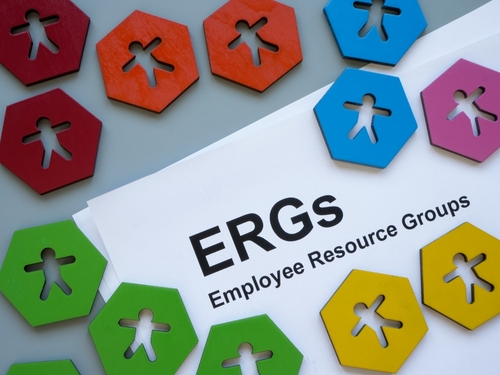Employee Resource Groups (ERGs) play an important role in fostering inclusivity and a sense of belonging at organizations. What isn’t discussed as often is the role that human resource leaders play in helping ERGs thrive.
At 84.51°, a retail data science, media and insights company, I launched ITOPiA, an ERG, or what we call a People Led Group, for introverts. Today, ITOPiA is an active group with hundreds of members. For others who are interested in doing the same, here’s how HR leaders can help build communities that foster an inclusive culture of belonging and empower associates to succeed in the workplace.
Collaborating with HR
I contacted human resources early on for support formalizing the group. In addition to going over the requirements for starting a People Led Group, the HR leader gave me the autonomy to grow our group authentically. This was a critical step in helping set the group up for success. Instead of forcing us to expand prematurely or follow a strict template, our HR leader was patient in letting our group naturally evolve.
Other opportunities for HR leaders to help ERGs succeed include:
Promoting awareness: HR leaders can educate employees about the importance and benefits of ERGs. They can highlight success stories and share information about existing ERGs to generate interest and understanding.
Providing resources: HR leaders can develop comprehensive guidelines, toolkits, and resources to help employees set up ERGs. These materials can include information on how to form a group, create a charter, set goals and objectives, and establish governance structures.
Establishing a supportive framework: Create a supportive framework within the organization that encourages the formation of ERGs. This can include policies that protect employees’ rights to form ERGs, provide meeting space and resources, and ensure non-discrimination and inclusivity.
Facilitating networking: Facilitating networking opportunities for employees who are interested in starting ERGs can spark new ideas. Organize events, workshops, or forums where like-minded employees can connect, share ideas, and find potential co-founders or members for their ERGs.
Allocating funding: Help allocate funding or budgetary resources to support ERGs. This can include providing financial support for events, training programs, guest speakers, or other initiatives that the ERGs undertake.
Recognizing and celebrating ERGs: HR leaders can publicly acknowledge and recognize the contributions of ERGs within the organization. They can highlight the achievements of ERGs through internal communications, newsletters, or awards programs to raise awareness and build credibility.
Collaborating with ERGs: Actively collaborate with ERGs to align their efforts with the organization’s overall diversity and inclusion strategy. HR and ERG leaders can work together to identify areas for improvement, implement policies and practices that support ERG goals, and measure the impact of ERGs on employee engagement and retention.
The Time is Now
With our organization’s support, ITOPiA developed from an idea into a supportive and inclusive environment. In describing the group, associates have said, “I thought I was the only one, but now I feel less alone in my experiences.
As allies, there is much that HR leaders can do to support ERGs and promote diverse and inclusive work environments where people feel that they belong. By implementing these tips, you’re empowering associates to thrive and contribute to the overall success of the organization.
Ryan Showalter is Director, Business Development Consulting at 84.51°.

